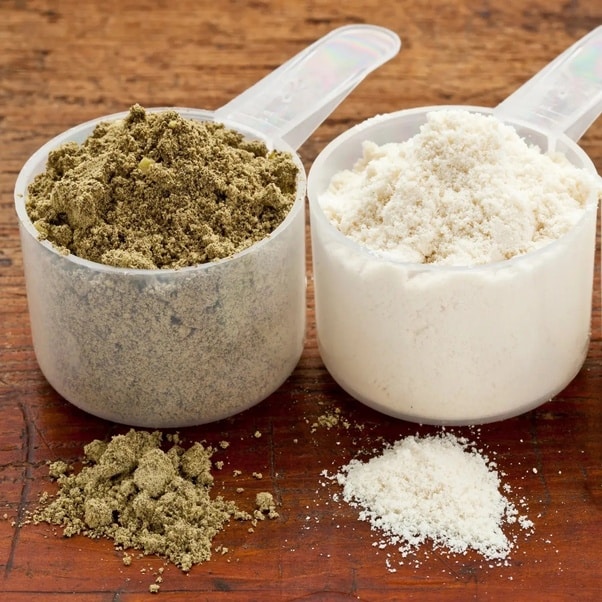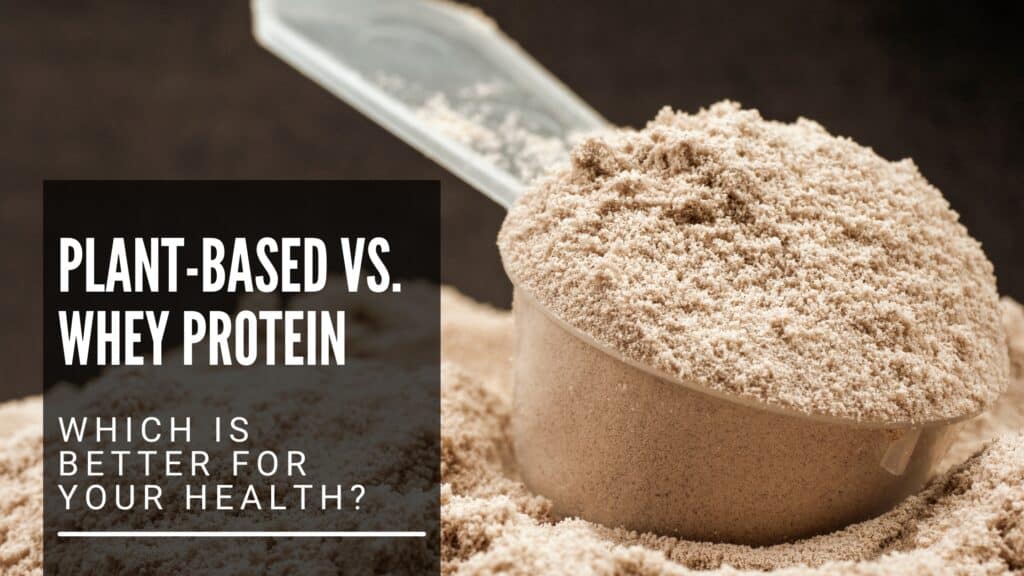Protein is much more than a nutritional staple; it’s a vital component of a healthy lifestyle, influencing everything from muscle repair to enzyme production. Today, the protein supplement market reflects a diverse array of choices, catering to different health goals and dietary preferences. Among these options, the discussion around plant-based versus whey protein is more relevant than ever. With health enthusiasts seeking the best protein sources to enhance their diets, this article aims to explore these two popular types of protein powders, offering a deep dive into their benefits, drawbacks, and which might best serve your health goals. This comparison is not just about nutrition—it’s about fitting your unique lifestyle and values.
Quick Summary:
- Protein Types: Plant-based (from sources like peas and rice) vs. whey (derived from milk).
- Nutrition: Analysis of amino acid profiles and digestibility.
- Health Impact: Benefits for muscle repair, weight management, and potential allergies.
- Environmental Factors: Sustainability of production methods.
- Decision Making: How to choose based on your health goals and ethical views.
Understanding Protein Powders
Protein powders are concentrated sources of protein derived from various foods and are primarily used to enhance dietary protein intake, supporting activities such as muscle building, weight management, and overall health maintenance. Here’s a closer look at the two major types:
- Whey Protein: This is extracted during the cheese-making process, where enzymes are added to heated milk, causing the whey to separate from the curds. The resulting liquid whey is then pasteurized and dried into a powder. Whey protein is celebrated for its high bioavailability and rapid absorption by the body, making it a favorite among athletes for post-workout recovery.
- Plant-Based Protein: These proteins are extracted from plants like peas, rice, hemp, and soy. The extraction process typically involves grinding the plant material, using water or a solvent to remove fat and carbohydrates, and then drying the remaining protein into a powder. Unlike whey, plant-based proteins may require blending different sources to achieve a complete amino acid profile. They are often chosen for their digestive ease, as well as their appeal to those on vegan or vegetarian diets, and those with dairy allergies.
Each type of protein powder offers unique nutritional benefits and can be selected based on individual dietary needs, lifestyle, and health goals.
Nutritional Comparison
Amino Acid Profile
Whey Protein: It’s a complete protein, containing all nine essential amino acids necessary for effective human metabolism and muscle recovery. This makes it particularly popular among athletes and those looking to build muscle efficiently.
Plant-Based Protein: These proteins, depending on the source (like pea, hemp, or rice), may not individually contain all essential amino acids. However, combining different plant proteins can provide a complete amino acid profile, making them equally effective.
Digestibility
Whey Protein: Whey is highly digestible and absorbed quickly by the body, which is why it is often recommended for post-workout recovery to speed up muscle repair.
Plant-Based Protein: Generally has a slower digestion rate, which can be advantageous for prolonged satiety and stable blood sugar levels, making it ideal for weight management and general health.
Nutritional Content
Whey Protein: High in protein and often low in fat, whey can be an excellent source of calcium. However, it lacks the fiber found in plant-based options.
Plant-Based Protein: Typically includes more fiber and often incorporates other nutrients like iron and antioxidants, depending on the plant source.
Additives and Allergens
Whey Protein: Can contain lactose, which is problematic for lactose-intolerant individuals. It might also include artificial sweeteners and flavors.
Plant-Based Protein: Usually free from dairy allergens but may include additives like flavor enhancers, stabilizers, and sweeteners. Always checking the ingredient list is recommended to avoid unwanted additives.
Health Benefits and Concerns
- Muscle Repair and Growth: Whey protein has been extensively studied for its ability to support muscle repair and growth. Plant-based proteins can also support muscle health, especially when consumed in proper combinations to ensure all essential amino acids are present.
- Weight Management: Both protein types can aid in weight management due to their ability to promote satiety.
- Allergies and Restrictions: Whey protein is not suitable for vegans or those with a lactose intolerance. Plant-based proteins are generally hypoallergenic and vegan-friendly.

Making the Right Choice for You
Selecting the right protein powder involves a thoughtful consideration of your specific dietary requirements, health objectives, and personal values. Here’s how to navigate the choice:
- Dietary Needs: Evaluate any dietary restrictions you might have, such as lactose intolerance, which would lean you towards a plant-based option. Also, consider your protein requirements based on your level of physical activity and overall health goals.
- Health Objectives: If your goal is quick muscle recovery post-workout, whey protein is highly efficient due to its rapid absorption rate. Conversely, if you are looking for a steady release of energy or managing weight, the slower digestion rate of plant-based proteins might be beneficial.
- Personal Values: Consider the environmental impact and ethical implications of your choice. Plant-based proteins generally have a lower environmental footprint and are suitable for vegan diets, aligning well with those priorities.
FAQ
Can plant-based protein provide enough amino acids as whey?
Yes, when combined properly, plant-based proteins can provide a complete amino acid profile similar to whey.
Is whey protein suitable for everyone?
Whey protein is not suitable for vegans or those with lactose intolerance. It’s also less ideal for people who prefer not to consume animal-derived products.
What should I look for when choosing a protein powder?
Look for powders with the fewest additives, a high protein content per serving, and consider any dietary sensitivities or ethical preferences you may have.
Making an informed decision requires weighing these factors against your personal health and ethical considerations.
Conclusion:
Choosing between plant-based and whey protein powders involves more than just picking a supplement; it’s about aligning your dietary choice with your lifestyle, health goals, and ethical values. Both options have their unique strengths: whey protein excels in fast absorption and muscle synthesis, making it ideal for athletes, while plant-based proteins offer a sustainable, allergen-friendly alternative that supports a broader range of dietary needs. By understanding your personal health objectives and the impact of your choices on the environment, you can make a decision that not only supports your body but also reflects your values. Remember, the best choice is one that contributes to your overall well-being and helps you achieve your fitness and health goals.
References
Babault, Nicolas, et al. “Pea Proteins Oral Supplementation Promotes Muscle Thickness Gains during Resistance Training: A Double-Blind, Randomized, Placebo-Controlled Clinical Trial vs. Whey Protein.” Journal of the International Society of Sports Nutrition, vol. 12, no. 1, 2015, p. 3, https://doi.org/10.1186/s12970-014-0064-5.
Venn, Bernard J, et al. “The Effect of Increasing Consumption of Pulses and Wholegrains in Obese People: A Randomized Controlled Trial.” Journal of the American College of Nutrition, vol. 29, no. 4, Aug. 2010, pp. 365–372, https://doi.org/10.1080/07315724.2010.10719853.


